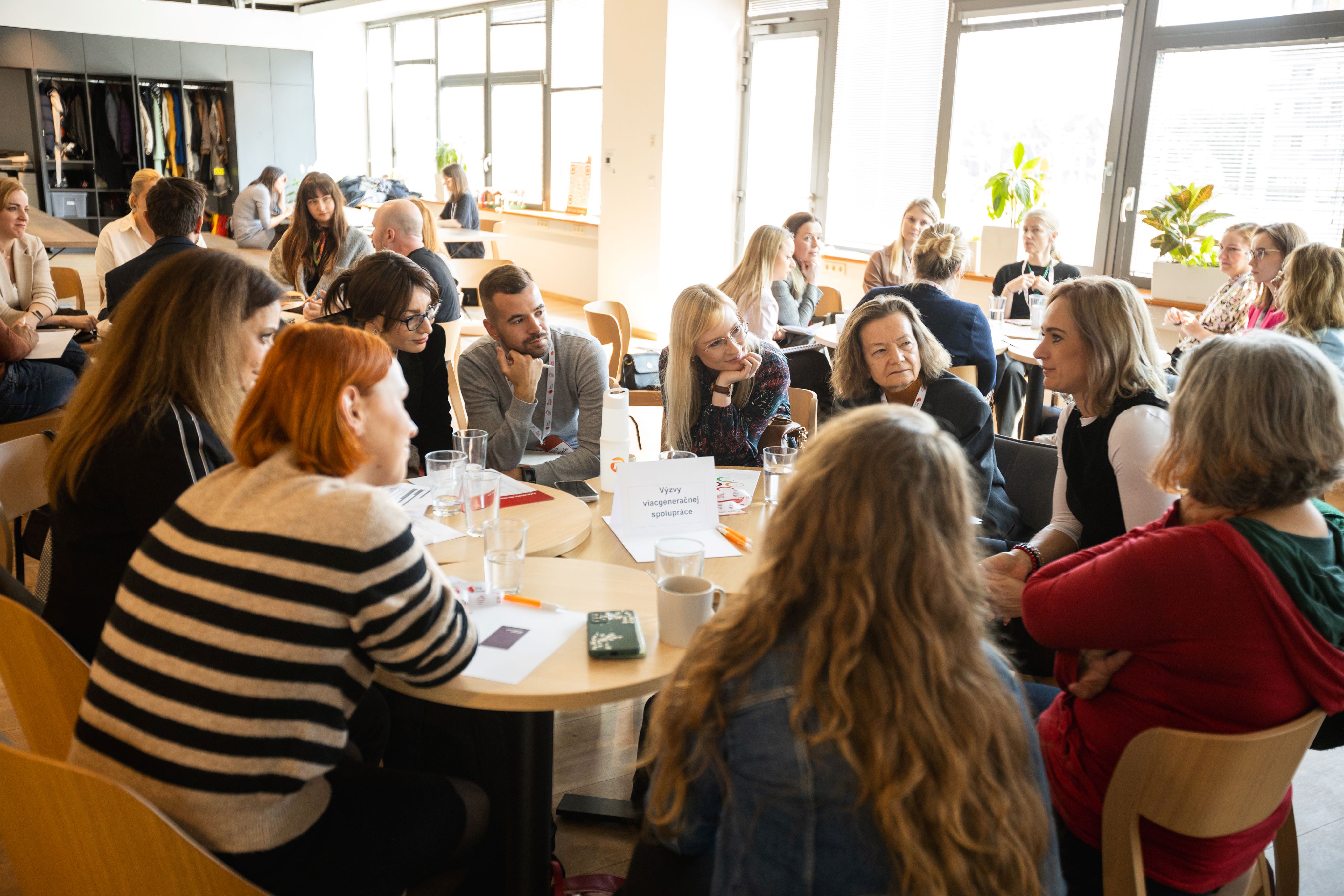Signatories of Slovak Diversity Charter discussed the topics of workplace inclusion

date: 09/04/2024
The meeting, held on March 13, was opened by the head of the HR department of the hosting company ING Hubs Slovakia, Sandra Balážiková. She introduced the corporate culture of the company, which contains diversity, equity and inclusion: "At ING, besides including disadvantaged groups, we also strive to create an accepting environment for women who are mothers and facilitate their integration into the work process after their maternity leave. We are also pioneers in the equal pay policies, which is one of the goals across the ING group."
Ivana Vagaská, Executive Director of the Business Leaders Forum, then summarized the activities of the Diversity Charter for the year 2023 and presented plans for the current one. She emphasized the need for education on the comprehensive topic of DEI (diversity, equity and inclusion) in the workplace and the opportunity to use free of charge training for signatories of the Charter. As part of the European charter cooperation, she also pointed out the opportunity to participate in the European Diversity Month and soon also the European Diversity Barometer.
Inclusive language should reflect the shift of society
The importance of education about diversity and inclusion in society is indisputable. However, it is also necessary to pay attention to the language and learn how to communicate without prejudice and with respect. Using inclusive or gender-sensitive language also brings challenges. Not only from a scientific or user perspective but also from the perspective of groups directly affected by its application. This topic was discussed by Lucia Molnár Satinská, a linguist from the Slovak Academy of Sciences, Martin Staňo, Radio_FM moderator and Roman Samotný, head of communications at the Inakosť Initiative.
Although inclusive language, especially in the media or business environment, is being used gradually more, its acceptance within society is not straightforward. The counterarguments are that specifically the gender-sensitive language is unnatural, impractical, and it unnecessarily lengthens the texts. However, Lucia Molnár Satinská refutes these arguments: "What we use is natural. The more we get used to gender-sensitive language, the more natural it will be for us." Moreover, replacing the generic masculine with doubled words is not the only mandatory way. "Let's learn to use neutral expressions, such as people, teams... They include everyone, also the non-binary people," she explained at the meeting.
Not excluding due to the lack of vocabulary
As Roman Samotný pointed out, language evolves, and we are still searching for suitable words and concepts for queer people. However, it is important not to give up in trying to address them, "so the lack of vocabulary does not exclude people from the group." We should not forget that words have the power to shape our thinking and perception of the world around us. "Correct language makes sense to preserve the dignity of every individual in the society," added R. Samotný.
Moderator Martin Staňo has also been using gender-sensitive expressions and combining them with neutral ones for a long time. He admits that it is not always easy and he often faces a dilemma of what to say so that it does not sound disrespectful or excluding. "Intention and context are important. Sometimes the generic masculine is appropriate, but we must always remember that the language we hear educates and shapes us," he explained.
The discussion on inclusive language was followed up by the discussion tables, which included other DEI topics such as ERGs (Employee Resource Groups) bringing together parents, LGBTI+ people in the workplace, unconscious biases, or challenges of multi-generational cooperation.
Inclusive leadership requires open communication
The final part of the meeting focused on the topic of inclusive leadership, which was covered in an interactive lecture by Monika Novosádová, a lecturer at the Otvorená hra organization. Monika highlighted the importance of values and attitudes, which should be reflected not only in the behavior of leaders and the organizational structure but also in the vision and strategy of the company. The rules of inclusive leadership were summarized into seven principles: observation, needs and resources, acceptance, diversity, individual approach, safe environment, and open communication.
"When introducing the idea of inclusion into the work environment, it is important to use language that people understand. Ideas, values, and visions become closer to them," said M. Novosádová. At the same time, she warned of the tendency to single out some disadvantaged groups, even with good intentions, which can lead to labeling. "Today we live in a highly individualized era, and inclusive leadership is about seeing the uniqueness of each person," she concluded.
